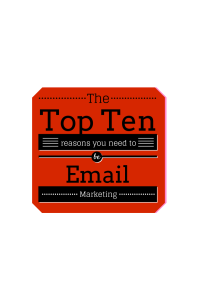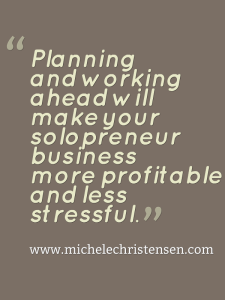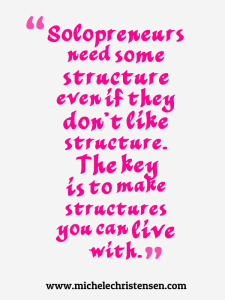 Up until this year, I devoted my social media time to multiple sites. For the most part, it worked pretty well. When I first started using social media to promote my business in 2009 it was much easier to stay current on all the “in” sites because there were fewer of them. There was also less to know. The medium wasn’t very mature. Facebook only started in 2004, so a few early, early adopters had been using social media for more than 5 years but the rest of us were 5 years of less.
Up until this year, I devoted my social media time to multiple sites. For the most part, it worked pretty well. When I first started using social media to promote my business in 2009 it was much easier to stay current on all the “in” sites because there were fewer of them. There was also less to know. The medium wasn’t very mature. Facebook only started in 2004, so a few early, early adopters had been using social media for more than 5 years but the rest of us were 5 years of less.

As social media matured and more sites came into existence, it got harder and harder to stay informed and use it well. Best practices were constantly being studied and revised. There were more things to measure and interpreting your data became more complex. I’m constantly testing and tweaking my business activities, so one of the things I did was cut way back on the sites where I got very little return on my time invested. That left me with a manageable two sites to focus my efforts on – Pinterest and Twitter. In a later post, I’ll talk about why Twitter made the cut but this post is about Pinterest.
Pinterest has several great qualities that make it ideal for solopreneurs. As a one-person business you have to be super efficient with your time and Pinterest fits that criteria. Here are some of the reasons I’m focusing on Pinterest this year.
- It sounds cliche, but it really is a traffic driving machine! I made just a few changes to my Pinterest activities and within a week Pinterest was in my top ten referral traffic sources. The following week, it was #4 in referral traffic and #7 overall. Given how little I did and how little I knew at the time, that’s pretty amazing. My Pinterest traffic has continued to grow as I’ve gotten better at using the site.
- When you add a pin to Pinterest, it creates a permanent link which can be found forever. Technically, the same is true on other social media sites, but the big difference with Pinterest is that people use the search function more than the feed of most recent pins. This means that it doesn’t matter when you made a pin, it only matters that you use the language that someone searching is using. How often do you read or get retweeted on year-old tweets, Facebook posts or LinkedIn updates?
- Pinterest boards are based, ideally, on interests. This means that when someone finds and follows a board of yours they are specifically looking for pins on that topic. You can create multiple, highly-targeted boards which will attract people interested in that topic instead of attracting people to your entire stream the way you would on Facebook, Twitter or LinkedIn. That means you can tightly target your content to the audience of each board, and someone doesn’t have to be interested in everything you do in order to follow some of your boards.
- Images are becoming increasingly important on social media, and on Pinterest the link goes with the image. When someone repins your pin, the link to your site usually goes with the new pin.
- People share a lot on Pinterest! Repinning, or sharing someone else’s content, represents 80% of pinning activity. Your quality pins have a good chance of being repinned and exposed to entire new audiences.
- The traffic that comes from Pinterest is high-quality! In a future post, I’ll talk more about driving traffic to your site with Pinterest but for now suffice it to say that the visitors that come from Pinterest are interested in what you have.
If you want to find out more about Pinterest and how it can benefit your business, watch this video training I did with Becky Sangha, the creator of Business Marketing wih Pinterest. It’s the system I use to get all these great results on Pinterest. Even though the site is as great as I describe, you can’t just sign up and fool around and expect to get business-building results by magic. It’s not hard, but you do have to use Pinterest in a strategic, planned way to get good results for your business.
Watch the training at the link below, and please use the social sharing buttons on the video page to tell your friends and colleagues about it!
Pinterest Marketing for Solopreneurs
Like this post? Please use the Pin it and social sharing buttons below. Thank you!








